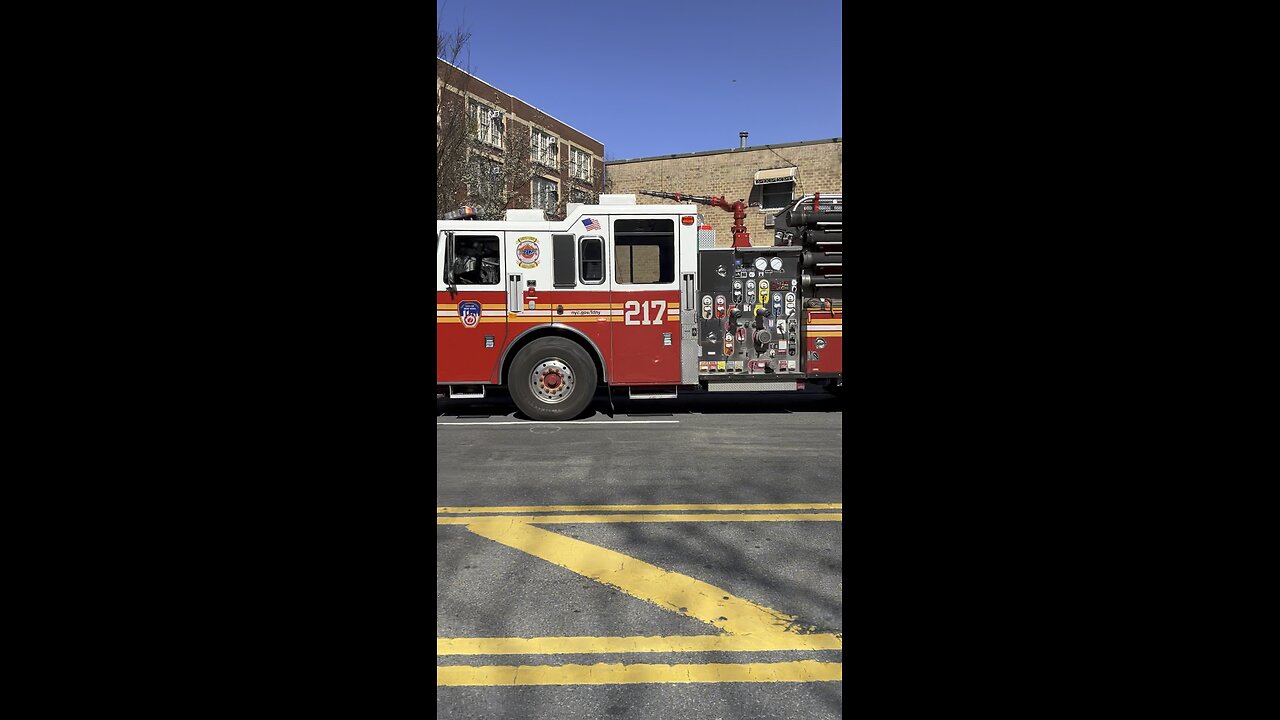Premium Only Content

"Stay Safe, NYC: Essential Fire Safety Tips
Install Smoke Alarms:
Place smoke alarms on every level of your home, including inside bedrooms and near sleeping areas.
Test smoke alarms monthly and replace batteries at least once a year.
Create an Escape Plan:
Identify all possible exits from your apartment or building, including windows and stairwells.
Practice your escape plan regularly with all household members.
Designate a meeting spot outside your building where everyone can gather after evacuating.
Know Your Building:
Familiarize yourself with your building's fire safety features, such as fire exits, fire alarms, and fire extinguishers.
Understand the building's evacuation procedures and emergency protocols.
Keep Exits Clear:
Do not block exits, hallways, or stairwells with furniture, clutter, or storage items.
Ensure that all doors and windows leading to exits are easily accessible and can be opened quickly in case of an emergency.
Cooking Safety:
Never leave cooking food unattended, especially when using stovetops or ovens.
Keep flammable items, such as dish towels and curtains, away from cooking appliances.
Keep a fire extinguisher rated for kitchen fires within reach.
Electrical Safety:
Avoid overloading electrical outlets and power strips.
Inspect electrical cords and appliances for damage, and replace them if necessary.
Unplug small appliances when not in use and before going to bed.
Heating Safety:
Use space heaters with caution, keeping them at least three feet away from flammable materials.
Never use stoves or ovens to heat your home.
Have heating systems, chimneys, and vents inspected and cleaned regularly.
Smoking Safety:
If you smoke, do so outside and use deep, sturdy ashtrays.
Never smoke in bed or when drowsy.
Ensure cigarettes are completely extinguished before disposing of them.
Stay Informed:
Stay informed about fire safety regulations and guidelines in New York City.
Sign up for local alerts and notifications to receive updates on emergencies and evacuation procedures.
Be Prepared:
Keep a portable emergency kit with essentials such as water, non-perishable food, flashlights, batteries, and a first aid kit.
Have a plan for pets in case of evacuation.
Know how to contact emergency services in case of a fire or other emergencies.
-
 1:02:58
1:02:58
Flyover Conservatives
1 day agoA Doctors Response to Trump’s First Moves: W.H.O. and FDA - Dr. Troy Spurrill; A REAL-LIFE Approach to Health and Wellness Transformation - Kellie Kuecha Moitt | FOC Show
86.9K6 -
 41:50
41:50
State of the Second Podcast
9 hours agoWhat do Gold and Guns have in common?
40.1K4 -
 1:01:26
1:01:26
PMG
6 hours ago $2.68 earnedLibs In FULL PANIC Since Trump Took Office! Creating a Faith to Fit their Agenda
28.9K9 -
 7:09:22
7:09:22
Dr Disrespect
14 hours ago🔴LIVE - DR DISRESPECT - TRIPLE THREAT CHALLENGE - EXTREME EDITION
258K32 -
 55:00
55:00
LFA TV
14 hours agoThe End of the January 6 Hoax | TRUMPET DAILY 1.22.25 7pm
48.6K12 -
 1:13:37
1:13:37
Battleground with Sean Parnell
11 hours agoPresident Trump Is On FIRE w/ Savage Rich Baris
187K27 -
 1:59:59
1:59:59
Melonie Mac
8 hours agoGo Boom Live Ep 34!
79.4K14 -
 49:27
49:27
Sarah Westall
7 hours agoTrillion Dollar 5G Lawsuit, Project Archimedes, Mind Control & DEW Weapons w/Attorney Todd Callender
80K38 -
 53:11
53:11
Standpoint with Gabe Groisman
1 day agoTrump Is Crucial For Hostage Agreement Says Israeli Colonel
56.6K5 -
 1:01:22
1:01:22
Anthony Pompliano
1 day ago $1.57 earnedTrump Inauguration Sends Bitcoin Flying
40.2K4